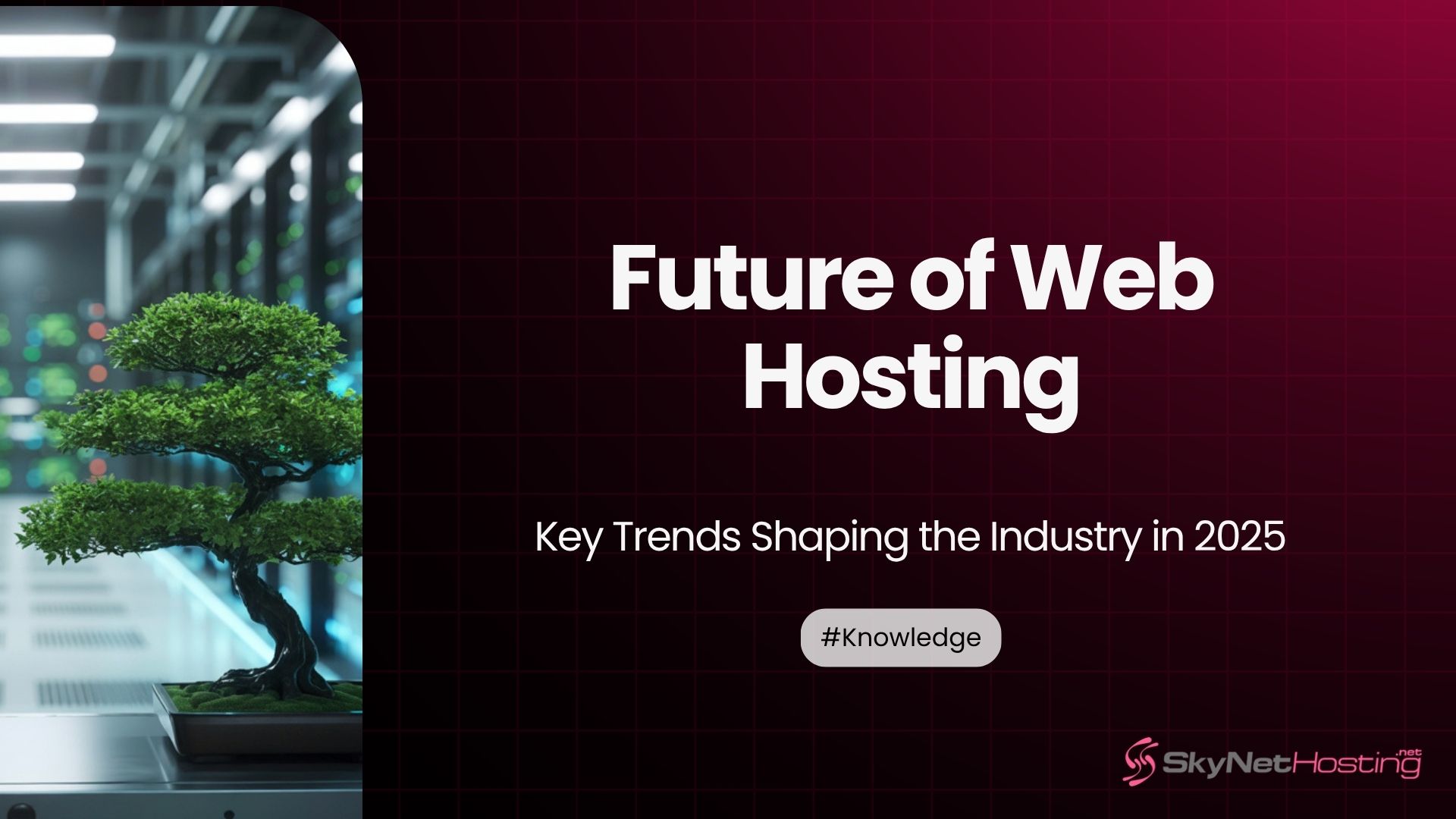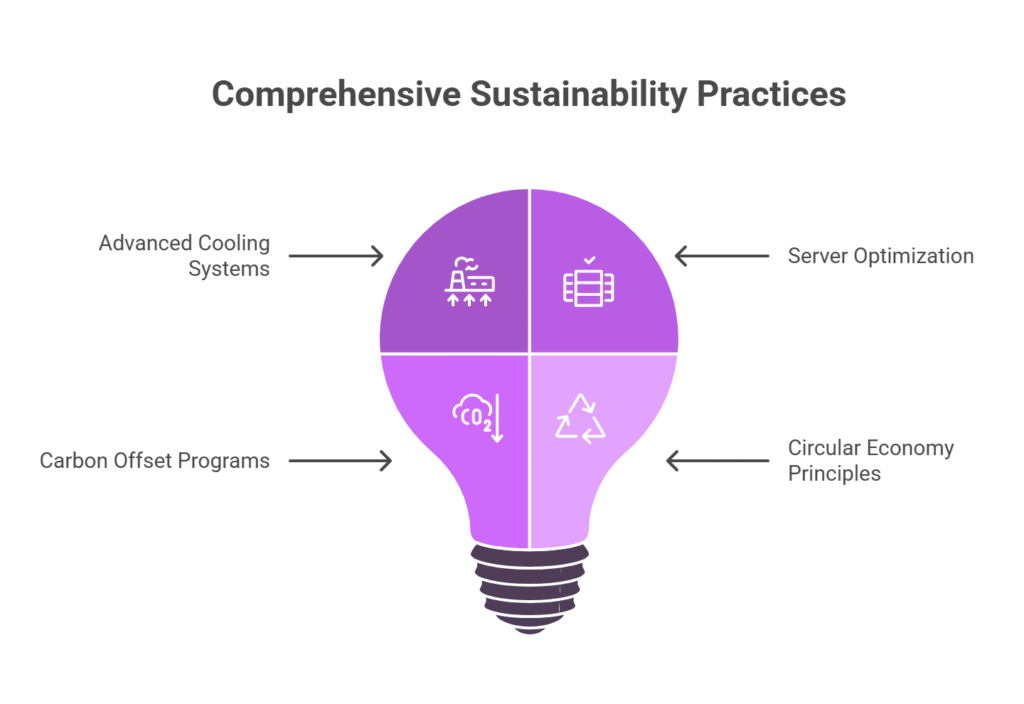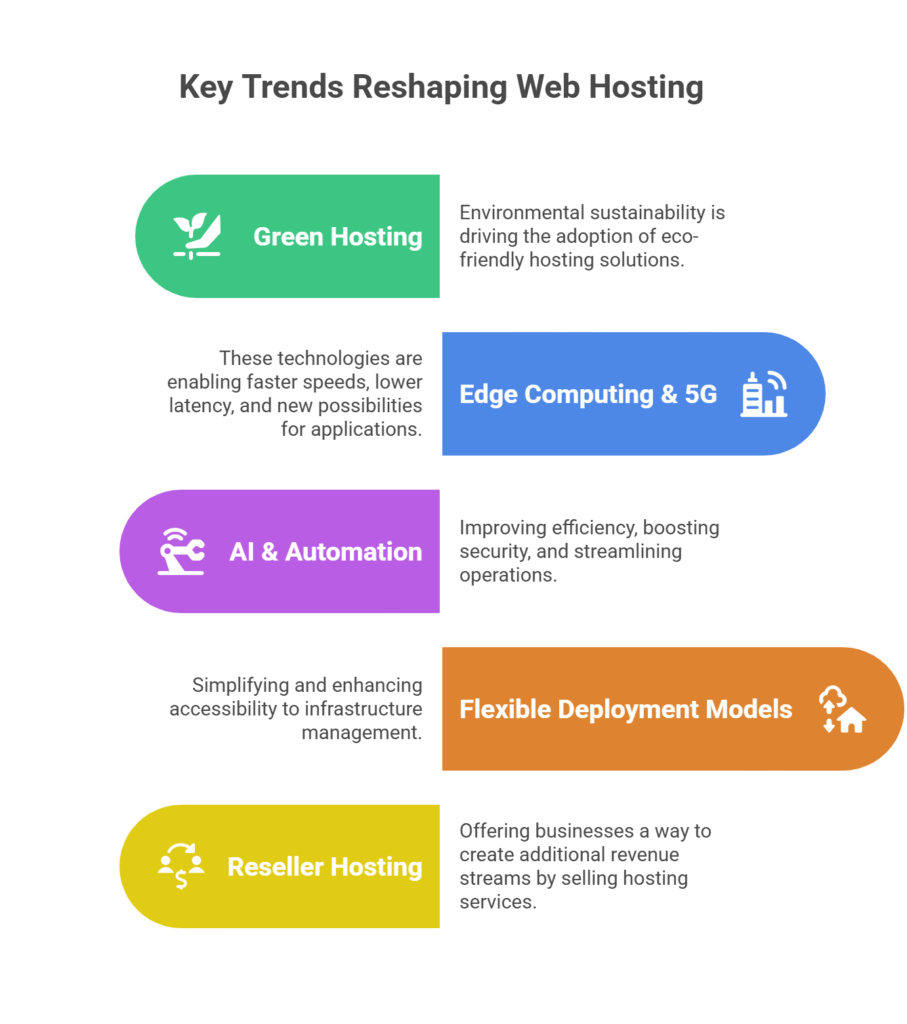
Future of Web Hosting: Key Trends Shaping the Industry in 2026
TL;DR:
- Green hosting goes mainstream: Sustainability is critical; major providers are investing in renewable energy and efficient data centers.
- Edge computing & 5G: Hosting is moving closer to users, reducing latency and enabling real-time gaming, IoT, and smarter applications.
- AI, automation, and security: Machine learning optimizes server resources, strengthens security, and automates scaling, making hosting more efficient and reliable.
- Flexible, usage-based models: Serverless, containers, and multi-cloud solutions allow businesses to scale on-demand without infrastructure headaches.
- Reseller hosting evolves: More automation, white-labeling, and comprehensive feature sets are enabling smaller businesses to thrive in 2026’s competitive landscape
The web hosting industry is undergoing a fundamental transformation, driven by a confluence of emerging technologies and shifting user demands.
For any professional building and managing digital infrastructure, understanding these changes isn’t just a matter of staying current, it’s critical for long-term strategic planning.
As a senior infrastructure engineer, I’ve seen firsthand how trends like sustainable hosting and AI-driven automation are reshaping the hosting landscape. This guide provides a detailed analysis of the key web hosting trends for 2026 and beyond.
The Rise of Green Hosting
Environmental sustainability has moved from a nice-to-have feature to a core business imperative. Web hosting providers are responding with innovative approaches to reduce their carbon footprint while maintaining performance standards.
Renewable Energy Data Centers
Data centers have become a significant consumer of global electricity, accounting for approximately 1% of the world’s total usage.
In response, the industry is witnessing a major shift toward renewable energy.
Industry giants are setting ambitious, verifiable goals: Google Cloud has been carbon-neutral since 2007 and is targeting 100% renewable energy by 2030, while Microsoft Azure has committed to becoming carbon-negative by the same year.
This movement is not just about corporate responsibility, it is a core competitive differentiator as more businesses prioritize suppliers who align with their sustainability goals.
Sustainable Hosting Practices
Beyond renewable energy, hosting companies are implementing comprehensive sustainability practices. These include:
- Advanced cooling systems that reduce energy consumption by up to 40%
- Server optimization techniques that maximize hardware efficiency
- Carbon offset programs for unavoidable emissions
- Circular economy principles for hardware lifecycle management

For developers, choosing environmentally responsible hosting providers can significantly reduce the carbon footprint of web applications while often providing cost savings through improved efficiency.
Edge Computing and 5G Impact
The combination of edge computing and 5G networks is changing the game for hosting infrastructure. It’s bringing computation closer to users than ever before.
With edge computing, data is processed closer to its source. This means lower latency, better app performance, and the ability to make real-time decisions, ideal for businesses leveraging X5 Servers dedicated servers for high-performance workloads.
Now, add 5G to the mix. Its high-speed, low-latency capabilities take edge computing to the next level. Together, they’re powering technologies like IoT devices, autonomous vehicles, and smart cities.
This dynamic duo is reshaping the digital world and unlocking incredible opportunities for innovation across industries. Exciting times ahead!
Speed, Latency, and User Experience Improvements
Edge computing spreads processing power across servers in different locations, cutting down latency in a big way. Pair this with 5G networks, and you’ve got near-instant response times. Apps that used to rely on local processing can now tap into cloud resources without losing performance.
CDNs (Content Delivery Networks) are stepping up their game. They’re no longer just about content caching, they’re turning into edge computing platforms. Now, developers can run application logic closer to users.
The result? Faster performance and lower bandwidth costs. It’s a win-win for everyone.
Enabling New Applications
The low-latency environment created by edge computing and 5G enables entirely new categories of applications. Real-time gaming, augmented reality experiences, and IoT applications benefit immensely from reduced network delays.
For developers, this means reconsidering application architecture to take advantage of distributed computing resources.
Edge hosting also supports better handling of traffic spikes and regional variations in demand, making applications more resilient and responsive across different geographic locations.
AI, Automation, and Security Advancements
Artificial intelligence and automation are revolutionizing hosting operations. They streamline processes like resource management, optimize server performance, and enhance scalability.
These technologies also play a critical role in threat detection and response. They enable faster identification of potential security risks and minimize downtime.
Ultimately, AI and automation improve overall efficiency and reliability for businesses, ensuring smoother operations and better performance.
Predictive Resource Management
AI-powered hosting platforms can predict traffic patterns and automatically scale resources before demand peaks. By analyzing historical data, seasonal trends, and real-time metrics, machine learning ensures servers are optimized to handle fluctuations seamlessly.
These systems also excel at predicting hardware failures before they happen. This allows for proactive maintenance, reducing downtime and keeping operations running smoothly.
For developers, this means more reliable hosting environments with less manual work. The result is enhanced performance and efficiency without the constant need for hands-on intervention..
Zero Trust and Enhanced Threat Protection
Security threats continue to evolve, pushing hosting providers to adopt zero-trust security models. This approach assumes no implicit trust and continuously validates every transaction and access request.
AI-driven security systems can detect anomalous behavior patterns and respond to threats in real-time. Advanced threat protection includes:
- Behavioral analysis to identify suspicious activities
- Automated incident response and containment
- Continuous vulnerability scanning and patching
- Enhanced DDoS protection with machine learning capabilities
These security enhancements provide developers with more secure hosting environments while reducing the complexity of implementing comprehensive security measures.
Serverless, Containers, and Multi-Cloud Strategies
The hosting landscape is shifting toward more flexible, scalable deployment models that abstract away infrastructure management complexities.
Simplifying Deployment and Scaling
Serverless computing continues to gain traction, allowing developers to focus on code rather than infrastructure.
Function-as-a-Service (FaaS) platforms handle scaling automatically, charging only for actual usage. This model is particularly attractive for applications with variable or unpredictable traffic patterns.
Container orchestration platforms like Kubernetes are becoming standard hosting options, providing consistent deployment environments across different infrastructure providers.
These platforms enable easy scaling, rolling updates, and efficient resource utilization.
Usage-Based and Flexible Hosting Models
Traditional hosting models based on fixed server specifications are giving way to more flexible pricing structures.
Usage-based billing allows organizations to pay only for consumed resources, making hosting more cost-effective for many applications.
Multi-cloud strategies are becoming more prevalent, allowing organizations to distribute workloads across multiple cloud providers to avoid vendor lock-in and optimize for specific use cases.
This approach provides better resilience and the flexibility to choose the best services from different providers.
Trends in Reseller and Master Reseller Hosting
The reseller hosting market is no exception to these industry-wide transformations. In my analysis, the landscape is becoming more sophisticated, with market leaders leveraging automation and comprehensive feature sets to empower smaller service providers.
As businesses and individuals increasingly seek reliable and flexible hosting solutions, these innovative approaches are setting the standard, enabling resellers to compete effectively without the need for significant infrastructure investment.
This evolution creates exciting new opportunities for service providers and developers to build their own hosting brands, with companies like Skynethosting.net leading the way with a commitment to quality and innovation.
Evolving Opportunities in 2026
Reseller hosting is becoming more sophisticated, with providers offering white-label solutions that include advanced features like automated backups, security scanning, and performance optimization.
This allows resellers to offer enterprise grade services without significant infrastructure investment.
Master reseller programs are expanding to include cloud-based resources, enabling resellers to offer scalable hosting solutions that can grow with their clients’ needs.
The integration of AI and automation tools is making it easier for resellers to manage multiple client accounts efficiently.
Automation Tools Empowering Resellers
Modern reseller hosting platforms include comprehensive automation tools that streamline account management, billing, and customer support.
These tools enable resellers to focus on business development and customer relationships rather than technical administration.
Advanced analytics and reporting capabilities help resellers understand client usage patterns and identify opportunities for upselling or service improvements.
Integration with popular development tools and platforms makes it easier to onboard new clients and manage their hosting needs.
Preparing for the Future of Web Hosting
The hosting industry’s rapid evolution presents both opportunities and challenges for developers and IT professionals. Understanding these trends is crucial for making strategic decisions about hosting infrastructure.
Key Trends Reshaping the Industry
Transformative trends are reshaping web hosting. Here’s what to know:
- Green Hosting: Environmental sustainability is driving the adoption of eco-friendly hosting solutions.
- Edge Computing & 5G: These technologies are enabling faster speeds, lower latency, and new possibilities for applications.
- AI & Automation: Improving efficiency, boosting security, and streamlining operations.
- Flexible Deployment Models: Simplifying and enhancing accessibility to infrastructure management.
- Reseller Hosting: Offering businesses a way to create additional revenue streams by selling hosting services.

These trends are interconnected and will collectively transform how we build, deploy, and manage web applications. Organizations that adapt their hosting strategies to embrace these changes will lead the way..
Building a Future-Ready Strategy
To get ready for the future of web hosting, it’s important to stay flexible and open to new approaches. Start by looking at hosting providers that prioritize sustainability, offer edge computing, and have strong security features.
Try experimenting with serverless and container-based deployment models. These can offer unique benefits depending on your specific needs and projects.
Keep an eye on emerging technologies in the hosting space. Being informed will help you adapt your strategy as new tools and capabilities become available.
The future of web hosting is undoubtedly defined by efficiency, security, and sustainability. As an industry professional, my advice is to build a strategy around these core pillars. The right hosting provider should not just keep you current but should be actively building for what’s next.
SkynetHosting.net is one such provider, with solutions that are secure, scalable, and performance-optimized to meet the demands of the future. Explore their offerings to discover hosting infrastructure that is ready to embrace change alongside you.
FAQs
What is green hosting and why is it vital?
How are edge computing and 5G revolutionizing hosting?
What role do AI and automation play in web hosting?
What are flexible and usage-based hosting models?
How is security evolving in web hosting?
What’s new for reseller and master reseller hosting?
How should businesses prepare for these web hosting trends?
Businesses should seek providers focused on sustainability, edge capabilities, robust security, and flexible deployment. Experimenting with containers, serverless, and multi-cloud approaches can help organizations stay ahead amid rapid hosting industry innovation.
About the Author: Elias Vance is a Senior Infrastructure Engineer with over 15 years of experience in managing high-performance web servers and data center operations. He specializes in optimizing hosting environments for speed, security, and scalability. A passionate advocate for efficient web technology, Elias leverages his deep technical expertise to help businesses and developers build faster, more reliable online platforms and navigate the evolving digital landscape.



